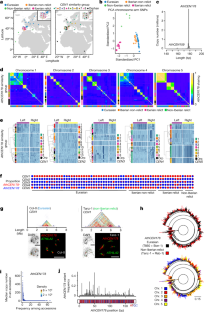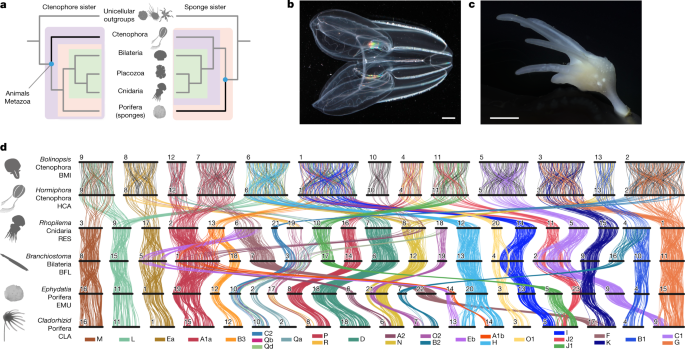利己的な遺伝子と細胞の浄化機構の綱引きが遺伝的多様性を生み出す Tug-of-war between selfish gene and cellular clean-up mechanism generates genetic diversity
2023-05-17 マックス・プランク研究所
◆国際研究チームが行った研究では、単一の種内でもセントロメアのDNA領域のバリエーションが大きいことが明らかになりました。この研究結果は、セントロメアの急速な進化の分子メカニズムや新しい種の形成における役割についての理解を深める一助となります。
<関連情報>
- https://www.mpg.de/20324876/playing-hide-and-seek-in-the-centromere
- https://www.nature.com/articles/s41586-023-06062-z
シロイヌナズナのセントロメアにおけるサテライトとトランスポゾンの進化のサイクル Cycles of satellite and transposon evolution in Arabidopsis centromeres
Piotr Wlodzimierz,Fernando A. Rabanal,Robin Burns,Matthew Naish,Elias Primetis,Alison Scott,Terezie Mandáková,Nicola Gorringe,Andrew J. Tock,Daniel Holland,Katrin Fritschi,Anette Habring,Christa Lanz,Christie Patel,Theresa Schlegel,Maximilian Collenberg,Miriam Mielke,Magnus Nordborg,Fabrice Roux,Gautam Shirsekar,Carlos Alonso-Blanco,Martin A. Lysak,Polina Y. Novikova,Alexandros Bousios,Detlef Weigel & Ian R. Henderson
Nature Published:17 May 2023
DOI:https://doi.org/10.1038/s41586-023-06062-z

Abstract
Centromeres are critical for cell division, loading CENH3 or CENPA histone variant nucleosomes, directing kinetochore formation and allowing chromosome segregation1,2. Despite their conserved function, centromere size and structure are diverse across species. To understand this centromere paradox3,4, it is necessary to know how centromeric diversity is generated and whether it reflects ancient trans-species variation or, instead, rapid post-speciation divergence. To address these questions, we assembled 346 centromeres from 66 Arabidopsis thaliana and 2 Arabidopsis lyrata accessions, which exhibited a remarkable degree of intra- and inter-species diversity. A. thaliana centromere repeat arrays are embedded in linkage blocks, despite ongoing internal satellite turnover, consistent with roles for unidirectional gene conversion or unequal crossover between sister chromatids in sequence diversification. Additionally, centrophilic ATHILA transposons have recently invaded the satellite arrays. To counter ATHILA invasion, chromosome-specific bursts of satellite homogenization generate higher-order repeats and purge transposons, in line with cycles of repeat evolution. Centromeric sequence changes are even more extreme in comparison between A. thaliana and A. lyrata. Together, our findings identify rapid cycles of transposon invasion and purging through satellite homogenization, which drive centromere evolution and ultimately contribute to speciation.


